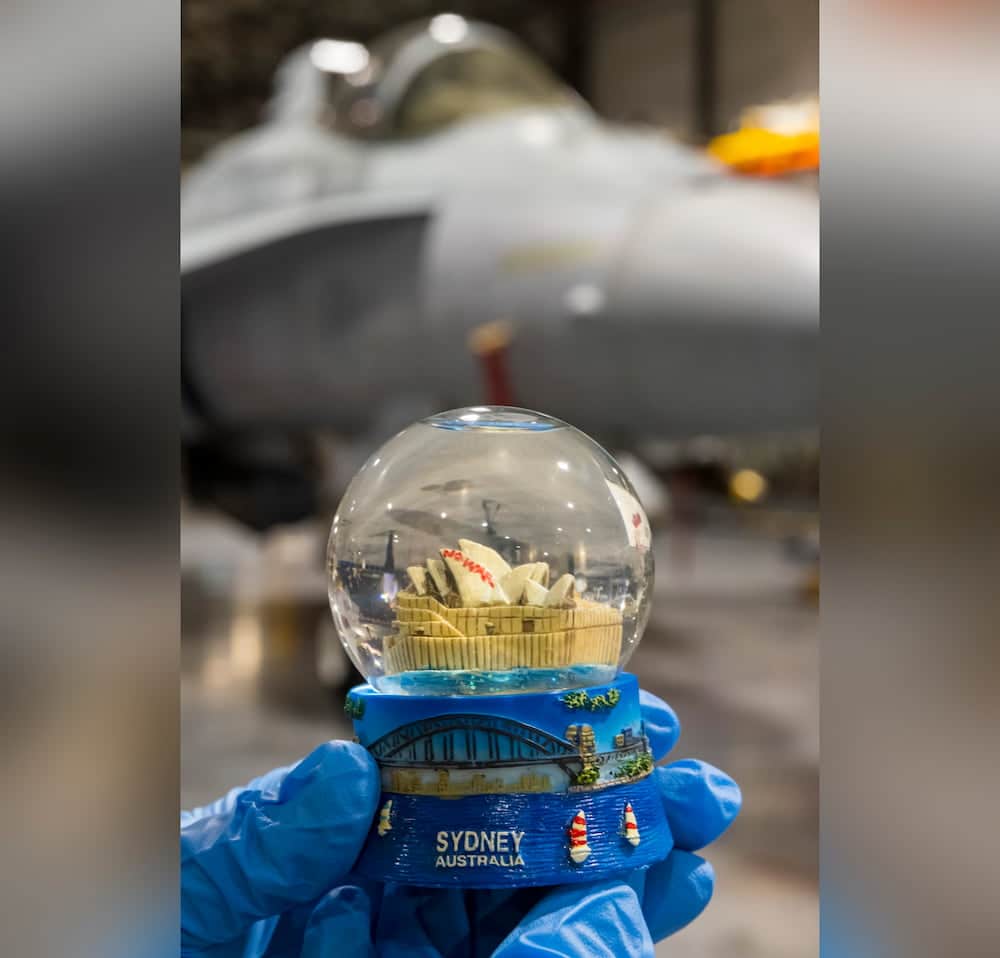Anti-war protest items and a fighter jet centrepiece will be featured in a memorial gallery marking the 20th anniversary of the invasion of Iraq.
The new gallery at the Australian War Memorial is designed as a safe space and will tell complex stories from different perspectives about the impact of the US-led invasion, which killed four Australians and caused conflict lasting almost a decade.
On March 20, 2003, Australian troops joined British and American forces in what was deemed “the Second Gulf War” to search for weapons of mass destruction in Iraq, however none were ever found.
A few days prior, David Burgess and Will Saunders scaled to the top of the Sydney Opera House and emblazoned the words “NO WAR” in bright red paint as part of an anti-war protest.
A sealed tin of red paint, paint-stained Dunlop shoes and a snow globe symbolising the protest will be on display at the gallery in Canberra, which memorial director Matt Anderson believes will help illustrate various narratives.
“Putting these items on display together at the Australian War Memorial is a powerful reminder that, in any healthy democracy, decisions to go to war and our community’s determined desire for peace are always interconnected,” Mr Anderson said.
Other experiences shared include the defence force story and diaspora communities who fled.
An F/A-18 Hornet aircraft will be a centrepiece at the gallery as they played a significant role in the Iraq War.
“Our new galleries will tell the story of Iraq in all of its complexity. We will acknowledge the courage and skill of the Australian service men and women who were deployed into harm’s way,” Mr Anderson said.
It follows the Australian War Memorial’s $500 million redevelopment in 2018.
Independent MP Andrew Wilkie, a former senior intelligence analyst who resigned one week before the Iraq invasion, criticised the government’s handling of the war and said leaders must be held accountable.
“Regrettably no one in Australia has ever been held to account for this egregious misconduct,” he said.
“Moreover the opportunity to learn from it and to reform war powers, in other words to give the parliament responsibility for deciding to go to war, has been ignored.”
On Tuesday, Canberra’s A Chorus of Women will gather in the marble foyer of Parliament House to sing 20 years after their first appearance on the day that then-prime minister John Howard announced Australia would join the Iraq War.



